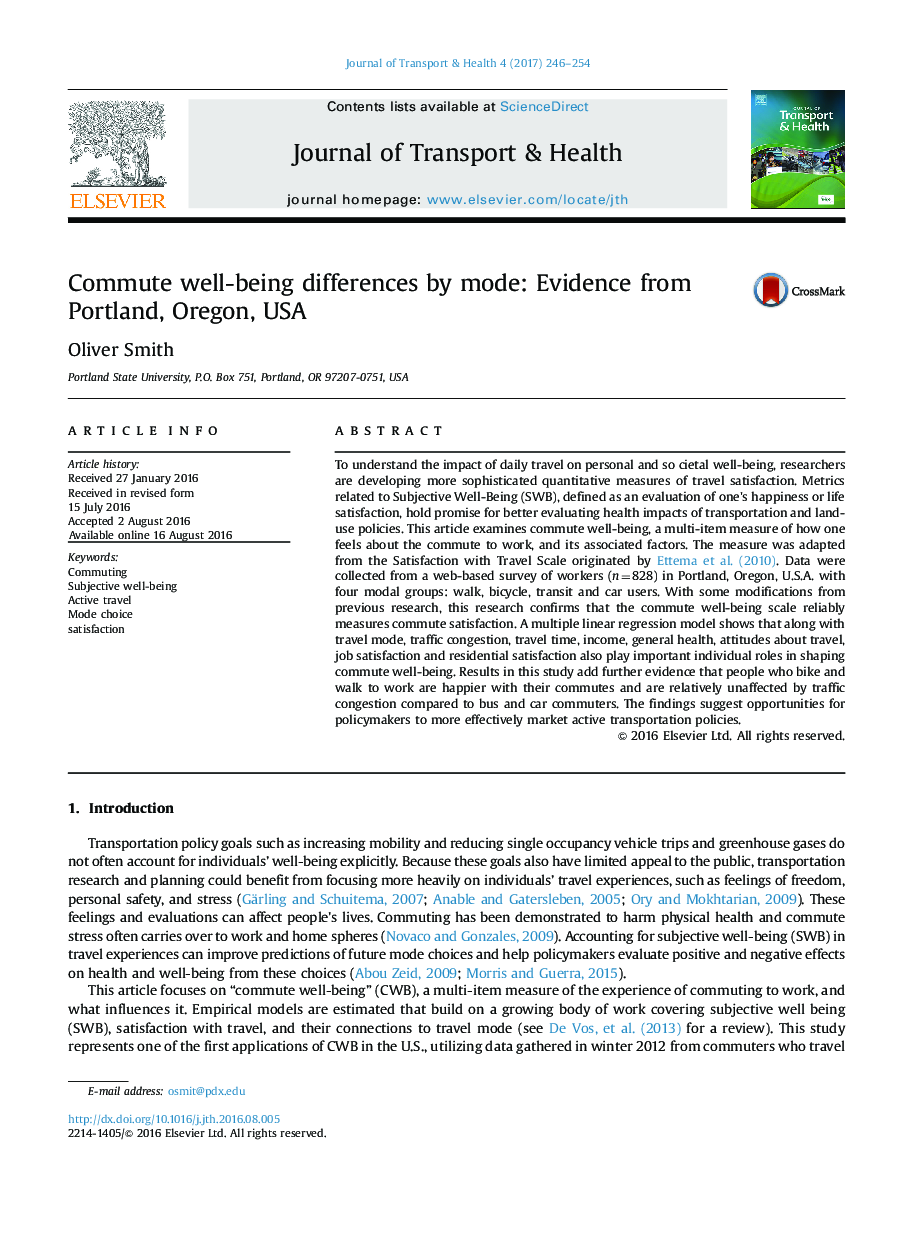| کد مقاله | کد نشریه | سال انتشار | مقاله انگلیسی | نسخه تمام متن |
|---|---|---|---|---|
| 5117878 | 1485457 | 2017 | 9 صفحه PDF | دانلود رایگان |
- Commuters to work via car, bicycle, walk and transit modes (n=828) are surveyed.
- Well-being associated with the commute to work is measured and modeled.
- Active travelers are happiest with their commute trips.
- For car and transit commuters, traffic congestion significantly decreases commute well-being and using the trip productively increases commute well-being.
To understand the impact of daily travel on personal and so cietal well-being, researchers are developing more sophisticated quantitative measures of travel satisfaction. Metrics related to Subjective Well-Being (SWB), defined as an evaluation of one׳s happiness or life satisfaction, hold promise for better evaluating health impacts of transportation and land-use policies. This article examines commute well-being, a multi-item measure of how one feels about the commute to work, and its associated factors. The measure was adapted from the Satisfaction with Travel Scale originated by Ettema et al. (2010). Data were collected from a web-based survey of workers (n=828) in Portland, Oregon, U.S.A. with four modal groups: walk, bicycle, transit and car users. With some modifications from previous research, this research confirms that the commute well-being scale reliably measures commute satisfaction. A multiple linear regression model shows that along with travel mode, traffic congestion, travel time, income, general health, attitudes about travel, job satisfaction and residential satisfaction also play important individual roles in shaping commute well-being. Results in this study add further evidence that people who bike and walk to work are happier with their commutes and are relatively unaffected by traffic congestion compared to bus and car commuters. The findings suggest opportunities for policymakers to more effectively market active transportation policies.
Journal: Journal of Transport & Health - Volume 4, March 2017, Pages 246-254
